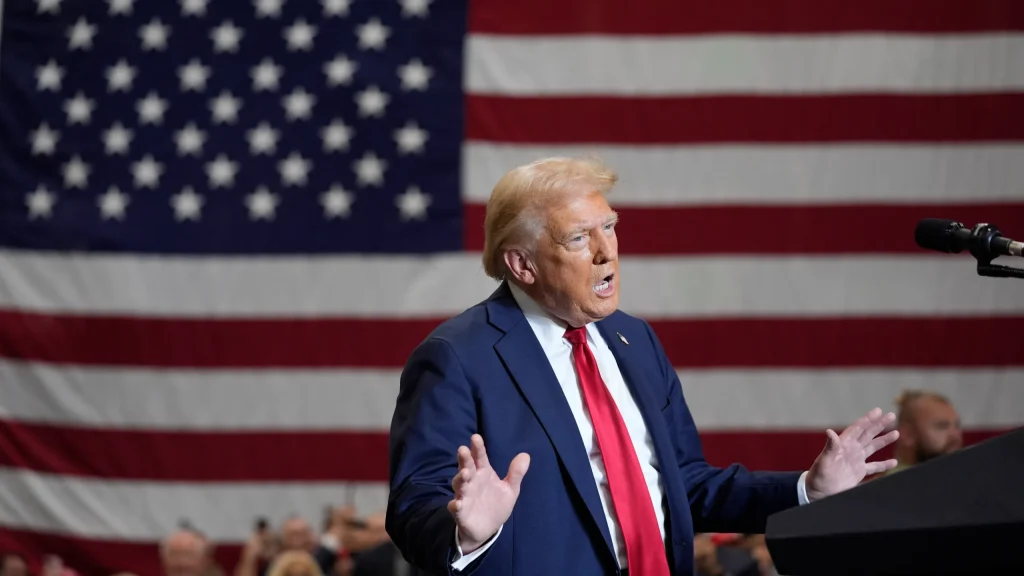US Plans to Cancel $13 Billion in Clean Energy Funds

- Department of Energy to cancel more than $13 billion in pledged subsidies for wind, solar, batteries, and EVs.
- Move sparks political backlash, with critics warning of lost jobs and ceded leadership to China.
- Decision reflects Trump administration’s broader push for fossil fuel expansion and retreat from climate diplomacy.
Washington Pulls Back on Renewable Commitments
The U.S. Department of Energy confirmed plans on Wednesday to cancel more than $13 billion in federal funds pledged under the Biden administration to accelerate renewable energy and electric vehicle deployment. The funding, originally designed to subsidize projects in wind, solar, battery storage, and EV manufacturing, is now slated to be withdrawn, with the administration framing the reversal as a return of taxpayer dollars.
“By returning these funds to the American taxpayer, the Trump administration is affirming its commitment to advancing more affordable, reliable and secure American energy,” the Department said in a statement. Officials declined to specify which programs or subsidies would be cut, leaving the scope of the rollback unclear.
Political Friction and Global Stakes
The announcement immediately reignited tensions between federal policy and state-led climate ambitions. California Governor Gavin Newsom sharply criticized the move, warning that the U.S. risks handing strategic advantage to China in the race for clean energy technology.
“President Xi, I don’t know what else he’s got to applaud,” Newsom said at a New York Times climate event. “I think he’s going to give President Trump a bear hug when he arrives.”
The remarks came as Trump confirmed plans to meet with Xi Jinping in the coming weeks, a geopolitical backdrop that adds weight to concerns about global leadership in renewable investment.
Climate Skepticism on the World Stage
The policy shift followed Trump’s address at the United Nations General Assembly, where he dismissed climate change as “the greatest con job” in the world. The comments underscored his skepticism toward multilateral climate cooperation and followed earlier steps to boost oil and gas production to record levels since his return to office in January.
Energy Secretary Chris Wright reinforced that position at a press conference in New York, stating that international institutions had “exaggerated” climate risks and driven “massive amounts of spending with very little positive impact.” Wright also confirmed he had no plans to attend November’s UN climate talks in Brazil, though he left open the possibility of engaging in future forums.

Economic Consequences for Clean Energy Jobs
Industry groups warn that the withdrawal of federal support could undermine one of the fastest-growing sectors of the U.S. economy. A recent report from environmental business coalition E2 found that jobs in renewable energy—particularly solar, wind, and related supply chains—expanded three times faster than the overall U.S. workforce in 2024. Without federal backing, many of these positions could be at risk.
RELATED ARTICLE: US Streamlines Environmental Reviews for Clean Energy and Infrastructure Projects
Clean energy industries have relied heavily on federal subsidies to attract private capital and scale new technologies. Investors caution that abrupt reversals in federal policy could inject new volatility into U.S. climate finance, complicating long-term capital planning in areas from grid modernization to EV manufacturing.
Implications for Governance and Markets
For C-suite leaders, the cancellation represents a decisive pivot in U.S. energy governance. The withdrawal of subsidies reduces near-term incentives for renewable deployment, potentially slowing progress toward national decarbonization goals while deepening reliance on fossil fuel output. It also raises questions about regulatory certainty—an issue investors rank as a top barrier to scaling low-carbon finance.
Globally, the reversal risks eroding U.S. credibility in climate negotiations and green industrial policy. With China and the EU accelerating their own subsidy regimes, analysts warn that American companies may face competitive disadvantages in clean technology markets if domestic policy support wanes.
Looking Ahead
While the administration frames the move as fiscal responsibility, the broader stakes extend far beyond budgetary savings. For states such as California pursuing aggressive decarbonization timelines, the loss of federal backing could complicate infrastructure investment and clean technology deployment. For global markets, the U.S. decision injects fresh uncertainty into the trajectory of clean energy finance at a time when international capital flows into climate-related projects are expected to exceed $2 trillion annually by 2030.
The decision underscores a widening gulf between state-level ambition, corporate commitments, and federal priorities. As Trump prepares for discussions with President Xi, energy policy is set to remain both a domestic flashpoint and a global negotiating lever.
Follow ESG News on LinkedIn








